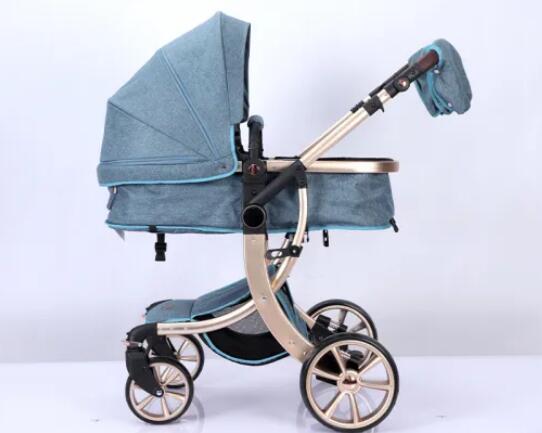What Age Should a Baby Use a Stroller?
The question of when to introduce a stroller into a baby's life is a common concern for parents. A stroller can provide convenience and comfort for both the baby and the caregiver, but it's crucial to consider the baby's developmental stage and needs. In this guide, we'll explore the factors that influence the appropriate age for a baby to start using a stroller.
Early Months: Newborn to Three Months
During the first few months of life, babies are still developing their neck and head control. Newborns have delicate spines and require more support when being transported. For this reason, it's recommended to avoid using a stroller for infants younger than three months, especially if the stroller doesn't recline fully. Instead, parents should opt for baby carriers, wraps, or slings that provide the necessary support for the baby's developing body.
Three to Six Months: Gaining Neck Control
Around the three to six-month mark, babies begin to gain more head and neck control. At this stage, a fashion stroller with a full recline feature can be a suitable option for short outings. Ensure that the baby's head and neck are well-supported when using the stroller in the reclined position. Many strollers also come with infant inserts or padding that can provide additional comfort and stability for younger babies.

Six to Nine Months: Sitting Up with Support
As babies approach six months of age, they typically start to sit up with support. This developmental milestone indicates that they are becoming more physically capable and can handle the sitting position in a stroller. Look for strollers that offer a semi-reclined or seated position with adequate back and head support. This stage is an excellent time to transition from exclusively using a baby carrier to incorporating a stroller into your outings.
Nine to Twelve Months: Exploring the World
Between nine and twelve months, babies continue to refine their motor skills and become more curious about their surroundings. A baby stroller with a slightly upright position and a view of the world can be engaging and stimulating for them. Opt for strollers with adjustable seat positions that allow your baby to comfortably observe their environment while maintaining proper support. Additionally, ensure that the stroller has safety features such as a secure harness to keep your baby safe during rides.
Twelve Months and Beyond: Toddler Adventures
By the time your baby reaches their first birthday, they are likely to be more active and eager to explore. Many strollers are designed to accommodate toddlers up to three years old or more, depending on the stroller's weight and size limits. As your baby becomes a toddler, you can transition to a stroller that offers a more upright seating position and provides them with the freedom to observe, interact, and enjoy their surroundings.
Final Considerations
While the age at which a baby should start using a stroller varies based on developmental milestones, it's important to prioritize safety and comfort throughout the process. Always ensure that the stroller you choose meets safety standards, offers proper support for your baby's age and stage, and has appropriate harnesses or straps to keep them secure.
In conclusion, the ideal age for a baby to start using a stroller is around six months when they have gained better head and neck control and are beginning to sit up with support. However, each baby is unique, so it's essential to observe your baby's readiness and consult with your pediatrician before making the transition. By considering your baby's physical development and individual needs, you can confidently introduce them to the world of stroller adventures at the right time.

